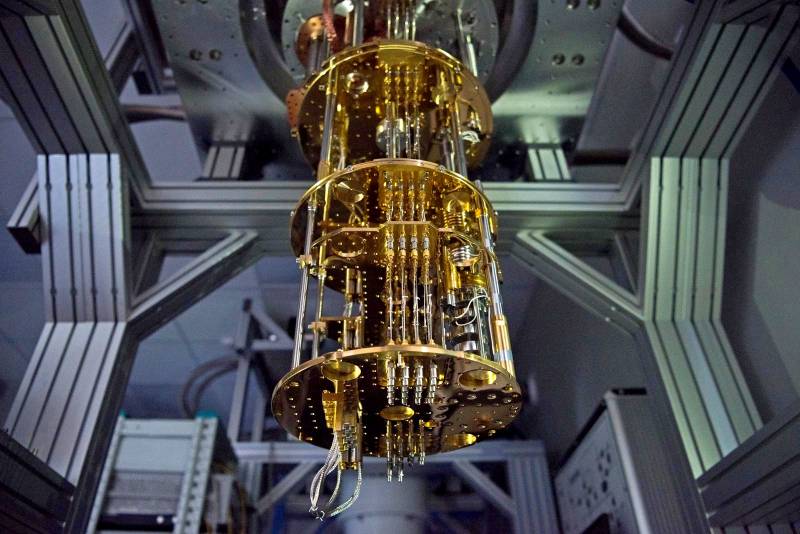In Russia, they tested a quantum computer on superconductors
A prototype of the first domestic quantum computer was launched in Russia. This was reported on the eve by the representatives (NITU) of MISiS. The configuration of the device includes 2 qubits made on the basis of superconductors.
As the first task for the brainchild of Russian engineers, a solution to the Grover algorithm (enumeration method) was chosen. Ideally, a powerful quantum computer can solve the problem with a probability of 100% in one call to the function f (x). However, due to the fact that the apparatus developed by scientists from (NUST) MISiS has a small number of q-bits, the probability of obtaining the right solution was 53%. Which, in general, exceeds the average threshold.
Creating a processor for the first domestic quantum computer involved in the Moscow State Technical University. Bauman project NITU "MISiS." For the efficient operation of the CPU, a unique complex was created on the basis of the university. The latter, thanks to equipment with cryostats, ensures the operation of the system at a temperature equal to absolute zero (-273,14 ° C).
Despite the fact that the prototype of the Russian quantum computer has a 2-qubit configuration, it compares favorably with foreign counterparts. The thing is that domestic q-bits based on superconductors cannot be "lost" and can be built nonlinearly. What can’t “boast” of qubits on individual atoms or ions. In addition, aluminum q-bits created by domestic engineers are better suited for quantum error correction.
As the first task for the brainchild of Russian engineers, a solution to the Grover algorithm (enumeration method) was chosen. Ideally, a powerful quantum computer can solve the problem with a probability of 100% in one call to the function f (x). However, due to the fact that the apparatus developed by scientists from (NUST) MISiS has a small number of q-bits, the probability of obtaining the right solution was 53%. Which, in general, exceeds the average threshold.
Creating a processor for the first domestic quantum computer involved in the Moscow State Technical University. Bauman project NITU "MISiS." For the efficient operation of the CPU, a unique complex was created on the basis of the university. The latter, thanks to equipment with cryostats, ensures the operation of the system at a temperature equal to absolute zero (-273,14 ° C).
Despite the fact that the prototype of the Russian quantum computer has a 2-qubit configuration, it compares favorably with foreign counterparts. The thing is that domestic q-bits based on superconductors cannot be "lost" and can be built nonlinearly. What can’t “boast” of qubits on individual atoms or ions. In addition, aluminum q-bits created by domestic engineers are better suited for quantum error correction.

Information